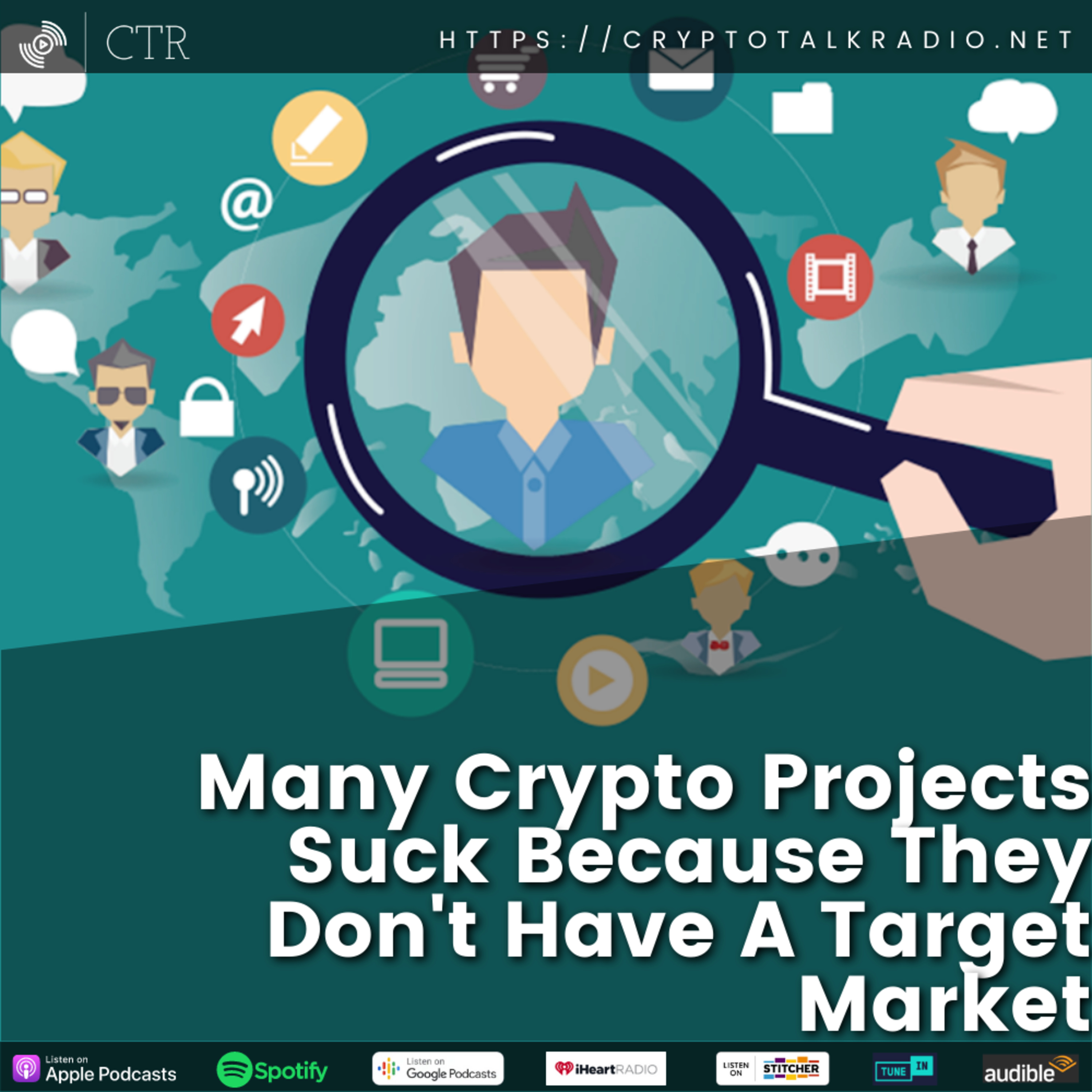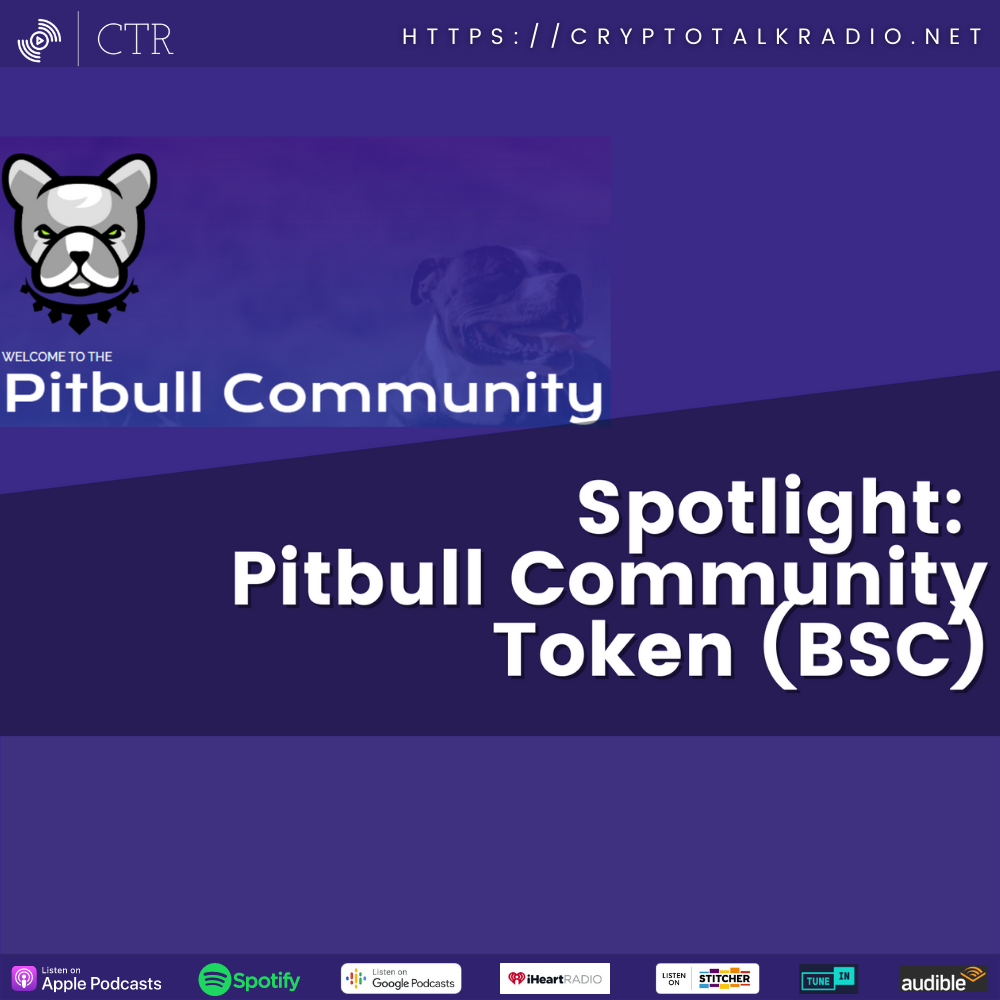Episode Transcript
[00:00:00] Good morning, ladies and gentlemen. While I debate walking down to the store, I have an update, an informational update for the crypto traders around the world. Hopefully, it is of value and benefit to you, because there's a lot of.
[00:00:16] I don't want to say Fud, because that's not fair, but it's a lot of misinformation. They have the best intentions, and there is some aspect of truth, but it is not taking full view of the real situation around crypto trading. And so I think it's important that to clarify it. The beauty of this is that there will be people who tell me that I'm nuts and wrong. But you can sign up with any exchange, whether that's Coinbase Pro or binance.com or binance us or Gate IO or lBank or any of the other ones, and you can watch the order book. And as you watch the order book, you will see what I'm saying to be true, to verify for yourself. So I want to put that out there first. I want to caveat also that depending on where people buy stuff from, it could be that in certain situations, the inverse of what I'm about to tell you is true. But generally speaking, you want to make sure that you understand what's happening and the exchange is the best way to see it, because if you're going through decks, you're not getting the best answer because it doesn't give you the transactions that are happening. It's just a single point, peer to peer.
[00:01:38] Many people will see across all of the web. When we're looking at crypto, there's this notion of just hold, hold, hold, and buy more, buy more, buy more, buy the dips and all this. Right.
[00:01:51] I want to make sure people understand what's really happening when you are transacting trading crypto, the same is true in stock.
[00:02:02] But the problem with stock versus crypto is that obviously with crypto, when we have these transactions happening, there's nothing really backing many of these coins. Right. So you're dealing with an understanding of people that just want to buy into the coin because they believe in it or they believe in where it's going to go.
[00:02:24] Whereas in stock, it uses a similar interface and a similar strategy and a similar dollar situation, but it also seems to tend towards one behavior opposite of stock, meaning that in a stock situation, you might have a few buys, you might have a few runs, and it kind of settles down, and then it kind of stays stable. Crypto mostly behaves the opposite, meaning that if it goes on a run. Its run extends for a long period of time, and then it plateaus, and then it tends to have a dip of however long, and then it plateaus. So it goes kind of in this wave pattern that most of the time stock does not go into when you look at the exchange. So feel free to pull it up. If you have one available and you look at the order book, the order book is showing you limit orders. Limit orders basically say, I'm trying to set a price that is different than the price that's out there. So if the price is out there at might create a buy limit order that is lower than the $0.50 because you're trying to get a deal and you're hoping somebody's willing to sell for lower than such.
[00:03:46] If you're doing a sell limit order, you might see $0.60 because somebody is trying to make a little bit of profit over top of it.
[00:03:55] Your red, therefore, is basically going to be your sell limit orders. Your green is going to be your buy limit orders.
[00:04:06] It's important to understand limit orders and their importance to crypto pricing, because think about this mathematically. If everything sold for the same price, the price would never move. This makes common sense, I think, to everybody.
[00:04:22] If we never asked for more or sold for less and we never were able to buy at discounts and deals, the price would never move. What you never want, though, is that people are buying at a loss. They're buying for less. They're getting deals and discounts. This doesn't mean that you're buying the dip. It means that people are selling for lower than what it's worth.
[00:04:49] So if you were to look in the sell orders, which is the red, you would, by and large, see that the prices people are asking are lower than the current median price of whichever crypto that's what you don't want. Because you think about, why would I sell at a loss? Why would I sell at a discount? Mostly it's because people are just trying to get out of it at a certain rate or lower, and there might still be people that are trying to get above. But if there's more people that are selling at a discount, think about it. If you were a buyer, you wouldn't want to spend exactly what it's asking. You want that discount, you want that deal, you want that lower price. So you as a buyer, that makes all sense for you because you're buying the discount. The problem is it's actually hurting the price to have excessive amounts of this because it's all going to re average itself, and thus the price starts going down because everybody's just buying at a discount.
[00:05:54] The notion of holding is that you are not taking either position. You're not selling at a loss, you're not necessarily trying to sell at a gain, but it opens up, ideally the doors for those who do want to get out to ideally sell at a profit, because that was their intent. We call those paper hands the people who they got in just to get the profits. And so they are necessarily going to want to price it higher than what the current rate is because they're trying to recoup that profit that they bought in two months ago or three months ago.
[00:06:36] If you don't have some buy activity and some sell activity through these limit order books, your price never significantly moves. And that's what you see for the most part in stocks. And that's what you see in cryptos, where there's less awareness about the crypto's utility and volatility, where they're not confident that it's worth buying in. And even if they do buy in, they're always looking for deals. And if they happen to get excessive amounts of deals, it brings the price down.
[00:07:09] That's not a completely terrible thing because it allows more people to buy in, but you don't want more paper hands to buy in either. If they buy in, they're just going to make the problem worse.
[00:07:22] If you have a good balance, a good synergy of price moving, in a perfect world, your amount of sells that happen to increase the price ever so slightly, so that they're selling just enough to help the price go up, but they're not getting rid of their bag. And you have people who are interested in buying because it's still a good deal and they're trying to get in as early as they can. That's the best ideal scenario, because your overall price should then go up over time. But it's hard to do that, because again, everybody buying, generally speaking, is looking for deals. You would not want to openly buy for more than what it's worth unless you had no choice. There was no inventory left, there was no sellers available in the open market.
[00:08:14] This is the value of exchanges, because exchanges are truly, there's a pot available in liquidity that they're exchanging through, meaning that if you do this sell and somebody's willing to buy, the exchange is going to facilitate this transaction through without the concern about availability of it. But at some point you're going to hit a law of diminishing returns. You're going to hit a point where there's not enough inventory to support anything other than a price increase, then the stock of inventory has to be replenished.
[00:08:52] That's where mining comes in and they buy it from those. And so then you get back into the groove and the cycle repeats.
[00:09:00] If everybody were to go straight to say uniswap and buy on the Ethereum side and buy straight through Uniswap, and there's the gas fees. You're essentially buying from the miners in a sense, because the miners are the ones contributing the supply that gets replenished through. And that's why there's gas fees to it. Yes, but if you go to an exchange, you don't have to worry about the gas fees, but you do have to worry about the constantly moving price, literally as you watch it. So there's a give and take and it's important that you wrap your head around. When I look at, if I'm buying through an exchange, when I look at the order book, you have to make sure that you understand what that price movement needs. It needs inventory, but it also needs people who are willing to sell at different rates. People who are willing to buy at different rates. You would never want a scenario where everybody's just holding. And it's illogical because you always would have people buying number one. Number two, at some point the stock would get exhausted in various places and thus you're going to need to sell in order to replenish this. So there's always going to be money movement. It's illogical to have everybody hold. I know that's what you hear, but the reason they're saying that is because they're really talking to the people who already bought in.
[00:10:26] If you've already bought in, so you bought a bag and let's say it's a penny per and you bought 1000.
[00:10:33] Okay, so if I paid my $10, I got my bag and then I'm sat on it. They're saying sit on it, just keep sitting on it, keep sitting on it, keep sitting on it. Because you should be realizing a price increase in theory, but default in that logic is that it only assumes that you have sell orders above the current price. We know that there's still going to be people regardless that day trade.
[00:11:03] Day trading is simply, I bought in at a certain price point, waiting for it to go up, ever slight because I see it's growing by 2% every hour. Once it gets to a point, I'm going to sell it back out and take the profit. That's a day trader within the same day. So if we know that there's those people, we know that there's going to be the freak outs, the paper hands that every time there's a dip of any kind, they freak out. So there's different categories that we know are there. So your hold yes, there's a logic in once I bought a bag, I should just sit on it. But it contradicts the need of how exchanges work and how transactions have to happen in order for the price to move. We need buys and sells.
[00:11:52] If you are trying to make profit and that's your only goal and you hold for the long term, then yes, there's an appeal to holding. Yes there is a strategy to buying the dip as in price goes down. I should add more to my bag because I should be able to benefit more on the back end. All of that is true. I'm simply saying don't conflate that with what you keep hearing, I'm sure hold they're talking about. Once you have your bag, try not to sell it off. I'm going to tell you from my perspective, sell when it makes sense for you.
[00:12:31] Don't go off what other people are telling you because here's the truth. If you were to sell, chances are you're going to and you're doing it for profit reasons, you're going to sell for a higher price than what it's worth. If you're going through an exchange, that should be your default, is to do a limit order for a price that's higher because you're trying to get the most of the profit when you sell, that helps everybody.
[00:12:56] It doesn't help everybody if you're just sitting on it and you had an opportunity to help the price go up, that doesn't help anybody.
[00:13:04] Ultimately. All I'm saying is the better strategy to think of is buy what you can afford to lose. Invest what you can afford to lose. If you know the volatility I've just discussed and you know that the price is going to move up and down, and you know that there's no guarantees, that means you should only invest what you can afford to lose. That doesn't mean that you only put $10 in. But if that's all you've got that you can afford to get away with, then do that. Don't invest your whole, as they call YOLO because you only live once. Because you're going to experience catastrophic failure at some point. As we've seen with this whole squid game business, invest what you can afford to lose. Second, and probably more important, sell when it makes sense for you. That means you should identify the reason that you're trading in the first place. Is the reason that you're trading because you believe in the project and so you want to help them out. Is the reason that you're trading to make profit. I would argue every one of us is this. But maybe you convinced yourself that your logic is different than mine, and so your reason is different. You want to make sure, under all circumstances, what is it that causes me to put this money in this crypto and sell when it makes sense for you? Don't worry about the hold. Hold scatters. It doesn't matter, because if you're selling for a higher price, it's actually going to help them.
[00:14:29] Now, if you are selling at a lower price because you hit desperate times, then I would slap you on the back of the wrist and say, why did you invest more than you could? But things happen, right? Medical bills and whatnot. That's fine. You still shouldn't feel bad about it because you're doing it for a good reason. You're not doing it to realize any profit. You're doing it because you need to sell when it makes sense for you. Hopefully that's helped. I'm going to cover a little bit more about these terms, but hopefully that's helped in why the buy and sell. Both are critically important.


